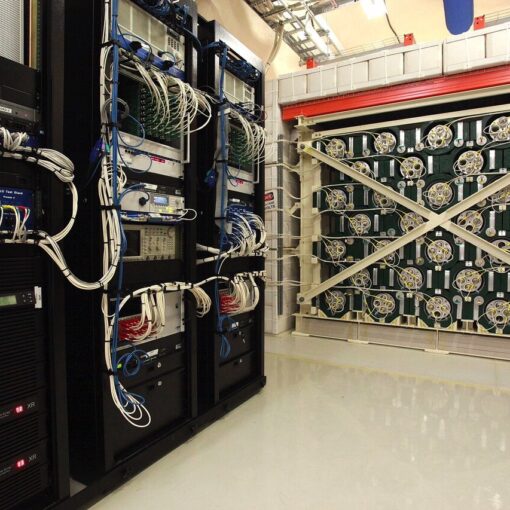The oil leak in the Gulf of Mexico is an immediate crisis, getting immediate attention. It poses long-term effects for sea life, coastal life, and human economics (fishing, tourism, etc.). That oil leak represents a major release of carbon into the Gulf; oil in its crude form is a thick and viscous material, rich in carbon and hydrogen. That oil was on its way to a surface platform. Before it exploded, that platform was to raise the oil from the deep and pump it into oil tankers for shipping to coastal refineries. Hydrocarbon, in liquid form, was on its way to being burned in cars and households across the United States. That burning releases the carbon, primarily in the form of carbon dioxide. A potent greenhouse gas, that CO2 is then free to become part of the growing blanket of CO2 covering the entire earth. That blanket continues to affect changes in the global climate.
While the research demonstrating a causal link between human fossil fuel activity and global climate change (e.g. global temperature) is clear beyond any doubt, the United States has been slow in responding to the challenge of addressing the problem: the burning of fossil fuels. Part of that failure is simply due to the politics of fossil fuels, and the challenge of transforming a carbon-based economy to something more diverse. Another part is in American science education, wherein we have failed to educate the general public in the scientific method. This leaves America vulnerable to the false dichotomy of “both sides get equal time” and the belief that science is a democratic process, rather than one of elimination of bad hypotheses. The final problem, I opine, is the invisibility of CO2.
CO2 is colorless and odorless, and while necessary for the functioning of plant life it is lethal to humans in large enough quantities (e.g. in an enclosed space). However, when it’s not directly affecting human respiration it might as well not exist; it’s unseen. A blanket of CO2 surrounds the earth. In partnership with water vapor, it helps keep the earth’s surface at a comfortable temperature. But the size of that CO2 blanket has increased by 50% since the industrial revolution. We know that this extra CO2 is due to the burning of fossil fuels because oil and coal, long sequestered in the earth (millions of years), are free of the radioisotope Carbon-14 [1]. Historical studies of C-14/C-12 ratios in the atmosphere, as through tree ring research, shows that the declining C-14 content in the atmosphere tracks exactly with the increase in CO2, all since the industrial revolution.
The problem is that we cannot see it. CO2 is not like smog; it doesn’t hang on our cities, induce asthma attacks in our children, lead to “spare the air” days, etc. Rather, it rises into the atmosphere, thickening the blanket and affecting average temperatures world-wide. We are fooled by seasonal variations in weather – witness the snow in Dallas this past winter – into thinking climate change is a joke, but meanwhile the CO2 blanket thickens as we warm (or cool) our houses and ignore the problem. In contrast, the Gulf of Mexico oil leak – no less a carbon-based disaster – will coat wildlife in crude, starve sea life of oxygen and sunlight, ruin beaches and choke fisheries. It will stir anger from Congress and from the American people that too little is being done too late to save us. Pictures of the slicks, of tarballs, of sick and dying wildlife, of fisherman and children affected by contaminated food or water, will dance across our TV screens. We will react. There will be no debate about whether the oil spill is real, or whether the devastation of wildlife will have a causal connection to oil. There will be nothing but the intent to act, and a frustration when action doesn’t lead to immediate relief. Anger will rule policy, lawsuits will fly, and no doubt coastal communities will be affected for years, if not decades.
Imagine this level of emotion and dedication was brought to the CO2 problem. Imagine if CO2 could make you sick, hurt your kids, lead to widespread death of wildlife. Imagine if all the false skeptics were silenced by images of CO2 wreaking widespread devastation.
Of course, this is not too realistic. CO2 takes a long time to have its impacts, as we have seen. Those changes are gradual, spreading over generations so that no one generation feels compelled to act. CO2 is truly invisible, and in being so has become conveniently ignorable. The dichotomy in our world is between how we act against things seen (the oil spill) and unseen (the incredible thickening of the CO2 blanket). Ironically, both of these problems have the same cause – our insatiable need for energy combined with a hesitation to change the fundamentals of our energy economy.
Humans are ignorant creatures, by evolution. We are sensitive to only a tiny portion of the electromagnetic spectrum, making us long blind to radio and UV light. It is science that lights a candle in the dark, and makes us aware of the unseen and its daily impacts on those things seen. We know that UV is bad for us, because each of us can get sunburn; as a result, we accept the benefits of sunscreen against an invisible enemy. We know that viruses (polio, measles, smallpox) cannot be seen, but are devastating to us in less than a generation; we accept that vaccination can save us from crippling diseases. We fight the unseen, in the hopes of preventing the seen.
The challenge of CO2 is a cross-generational problem, one which has not been addressed. The oil spill in the Gulf is real opportunity, much as the recognition that viruses (unseen) are connected to disease (seen). The oil spill is the seen, the disease; the energy demand, the need to separate hydrogen from carbon by burning the product is the cause. We have an opportunity to tackle the disease and develop a cure, by diversifying our energy portfolio and minimizing our dependence on old carbon-based fuels. Let the devastation in the Gulf be the face of the invisible CO2 blanket in the atmosphere, and let the devastation wrought by this disaster be a proxy for all the devastation to come from climate change. Maybe, if we recognize THIS as the face of our enemy, we will be compelled to act.



